By now you’re probably tired of hearing all of the buzzwords like AI, Generative AI, ChatGPT, Google Bard and so many others. Or maybe you’re finding it hard to keep up.
It seems like things related to content creation, search, coding, and all things web are moving at the speed of light. If you’re feeling overwhelmed, you’re not alone.
In addition to all of these cool new tools, search engines are also launching their own at fast pace. Bing is working with OpenAI and Google is rolling out more generative AI directly into search starting this week.
In this article we will discover what generative AI is and how it will impact how people search and find information on companies including law firms.
What is Generative AI?
Think of Generative AI as a young legal apprentice in a large law firm. This apprentice isn’t very experienced yet, but they are incredibly observant and have a near-perfect memory. They start their training by reading through a library of past legal cases, law textbooks, and legal documents. They notice patterns, such as how certain phrases are used, how arguments are structured, and how different laws are applied in different situations.
After a while, the apprentice becomes familiar with the language and structure of legal documents. Now, the senior lawyers at the firm want to see if the apprentice has learned enough to draft a simple legal document, say a contract, by themselves.
The apprentice uses what they’ve learned from studying the library to create a contract. They recall how other contracts were structured, what kind of language was used, and what legal points needed to be included. They draft a new contract that, while it borrows its structure and elements from other contracts they’ve seen, is entirely unique.
This is what Generative AI does. It learns from a massive amount of data (like our apprentice reading the law library), picks up on patterns and structures, and then uses that knowledge to generate new, original content. This content can be anything that can be represented digitally – text, images, music, and so on.
But How Will This Change How People Find Attorneys?
Let’s be real for a moment. There is a real issue with how people find attorneys right now. They can search for anything they want on Google, but is what they are getting truthful? Let’s look at a few examples.
Let’s say a searcher types in “best personal injury attorney in Texas”. Their intent is to truly find the best attorney for their case. They are met with options.
Option 1: A paid position where someone literally pays to imply they’re the “best”.

Option 2: An option that’s more based on past client reviews. A better solution IMHO
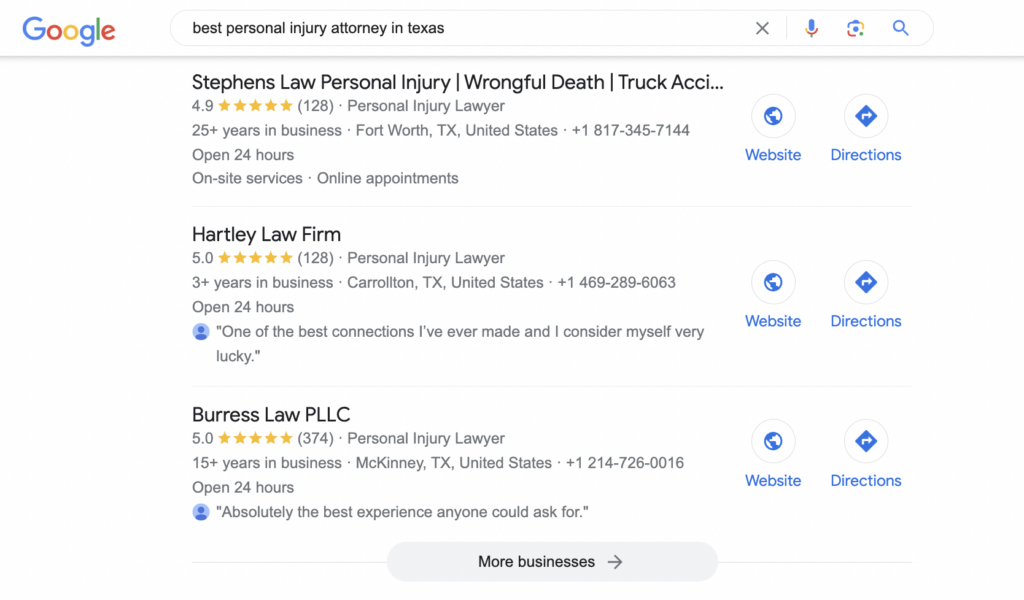
Option 3: A website who is trying to curate information and sell something. What’s their motive?

Option 4: Directories based different award criteria.

Option 5: Law firms optimized for these keywords (also implying they’re the best).

While there are many points to be made here (including potential ethical ones), the main takeaway I’m trying to reach right now is that search is broken.
It’s one sided.
You’re seeing what us marketers want you to see.
Will that change?
I don’t think so, but what will change is the need for your law firm to be the best publicly recognized and marketed firm.
Why You Need to Expand Your Footprint
For a decade or more I have been screaming from the rooftops that to get the best results in search results you need to be everywhere clients are looking. Call it barnacle SEO, share of search, or whatever you want, that is about to get more intense.
Let’s start by looking at example from Bard for that same search query and see what comes back.
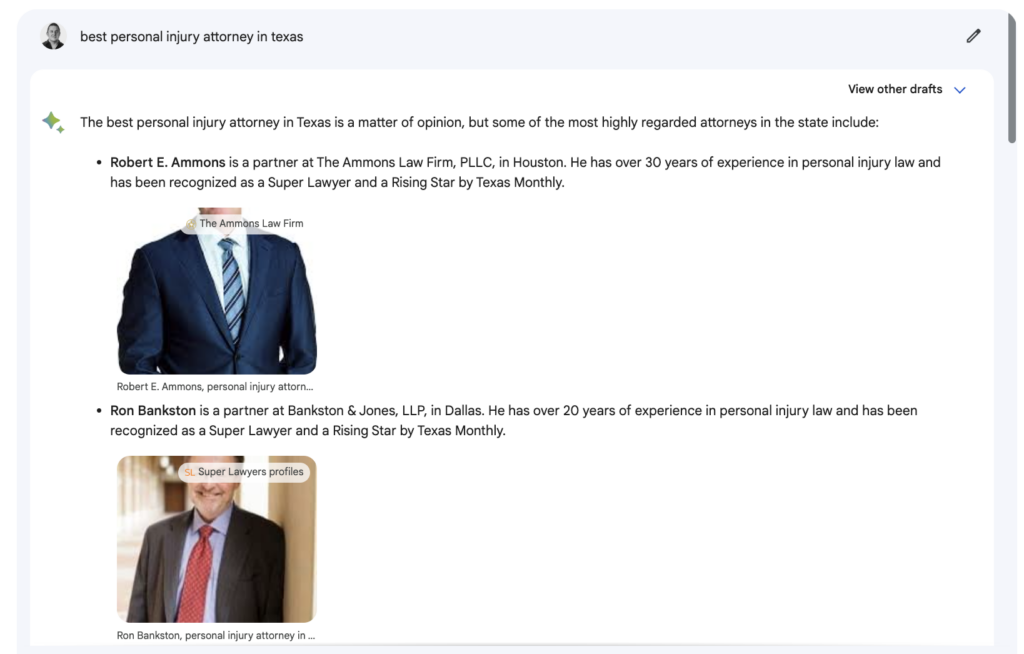
And now let’s ask Chat GPT 4 the same question. For example purposes I did this without web browsing (which we will get into soon).
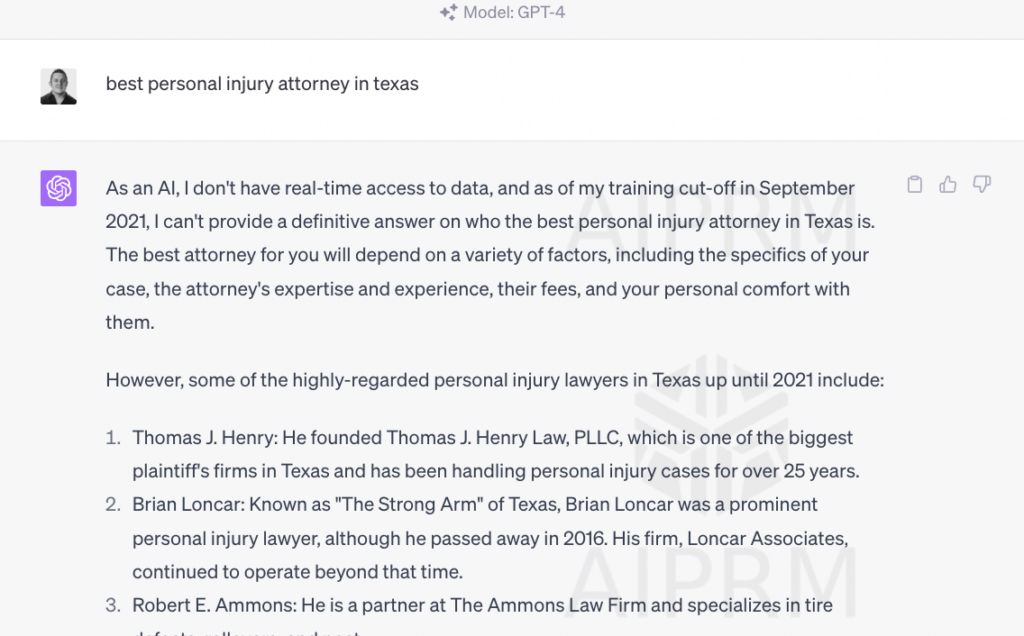
The takeaway here is that only one of the three attorneys showed up on two different lists.
So where are they getting their data from? Let’s ask!
While ChatGPT was not very specific in data it will give a list of general directories it pulls from. Bard on the other hand is more willing to share this information as you can see below:
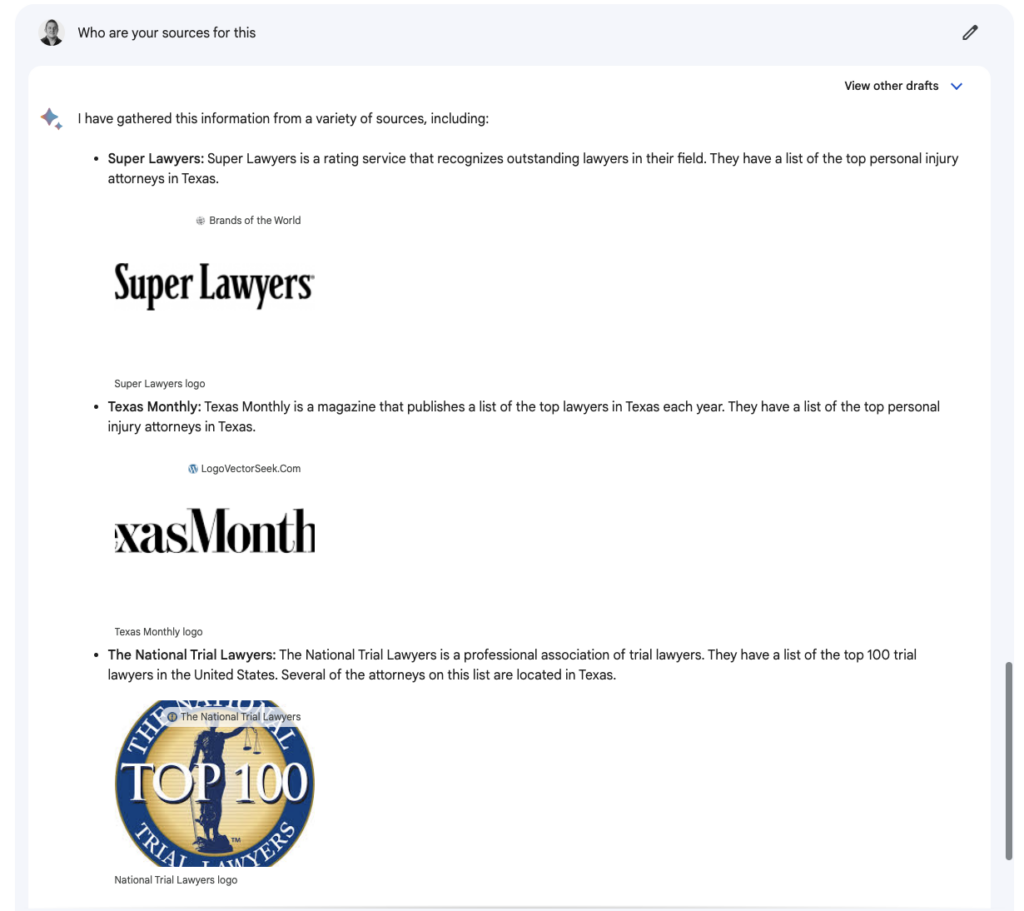
And on Bard’s list you will notice several pay to play listings.
Whether it’s right or wrong, this is just an initial iteration. These are going to change and change fast.
One of the things I see coming down the pipeline with this data given real time access is the ability to quickly vouch for a firm digitally by understanding average client reviews across all listings, legitimate awards, legitimate recognition, and paid or sponsored content separated. This will help potential clients make better decisions in the blink of an eye.
What Should Your Law Firm Do?
And now we’re at the point where we should discuss what your firm should be doing to stay on top of all of this.
In my opinion it’s a great time to really take a look at the list of top legal directories, citation lists, local business directories and ensure the information for your firm is accurate, up to date, and comprehensive.
It’s a good time playing around Bing, ChatGPT, Bard, and others to understand what sources they deem the most reputable. And even if they’re Pay-to-play it’s time to reconsider if you should appear there.
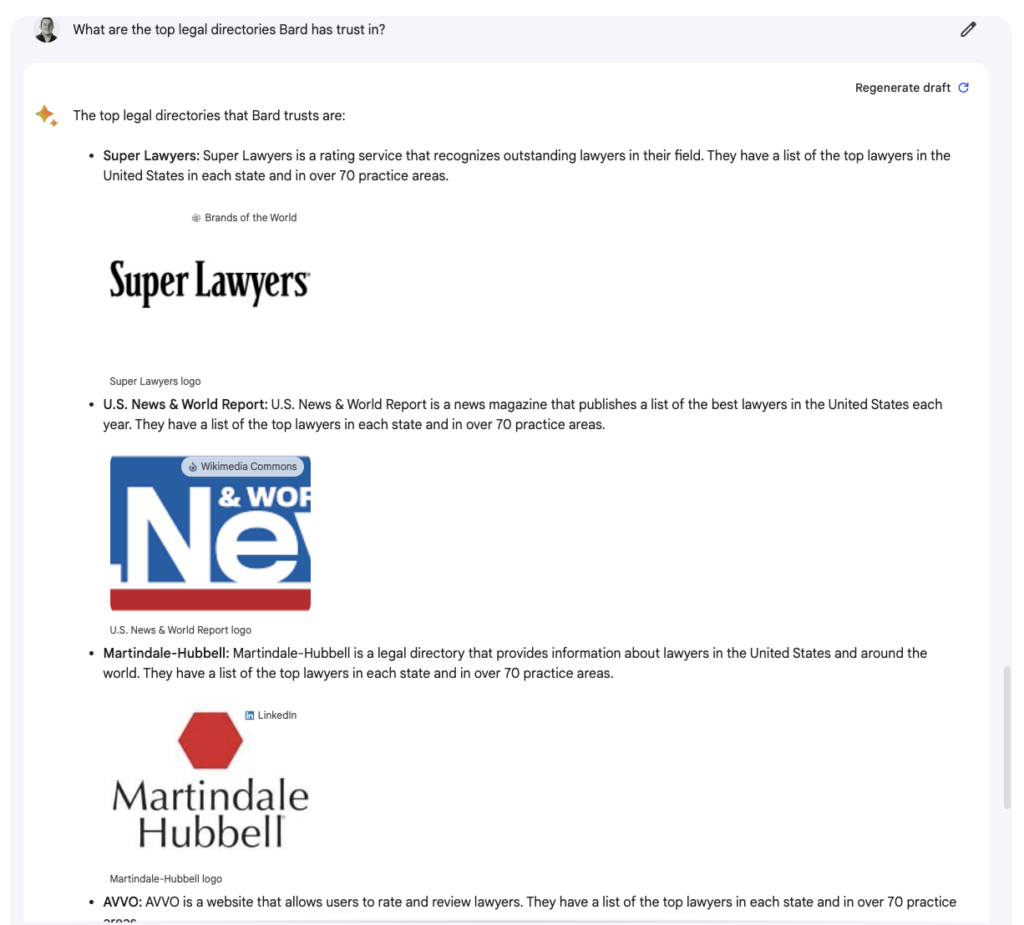
Only time will tell what the true implications of this will be, but the firms that are the best prepared are going to have the most success. And as generative AI gets integrated into more search engines, smart assistants, and software the the decisions on what search engines are the most important or popular might change too.
Our team specializes in designing custom marketing plans tailored specifically to your firm’s unique needs. We are dedicated to helping your firm thrive and boost its profitability.
Don’t spend your valuable time worrying about marketing strategies – leave that to us. At Juris Digital, we focus on growing your firm, so you can concentrate on what truly matters to you – providing top-notch legal service to your clients.
Don’t wait, seize the opportunity now. Click here to get in touch with Juris Digital and let’s start creating your custom marketing plan today. Together, we can make your law firm more successful than ever.
